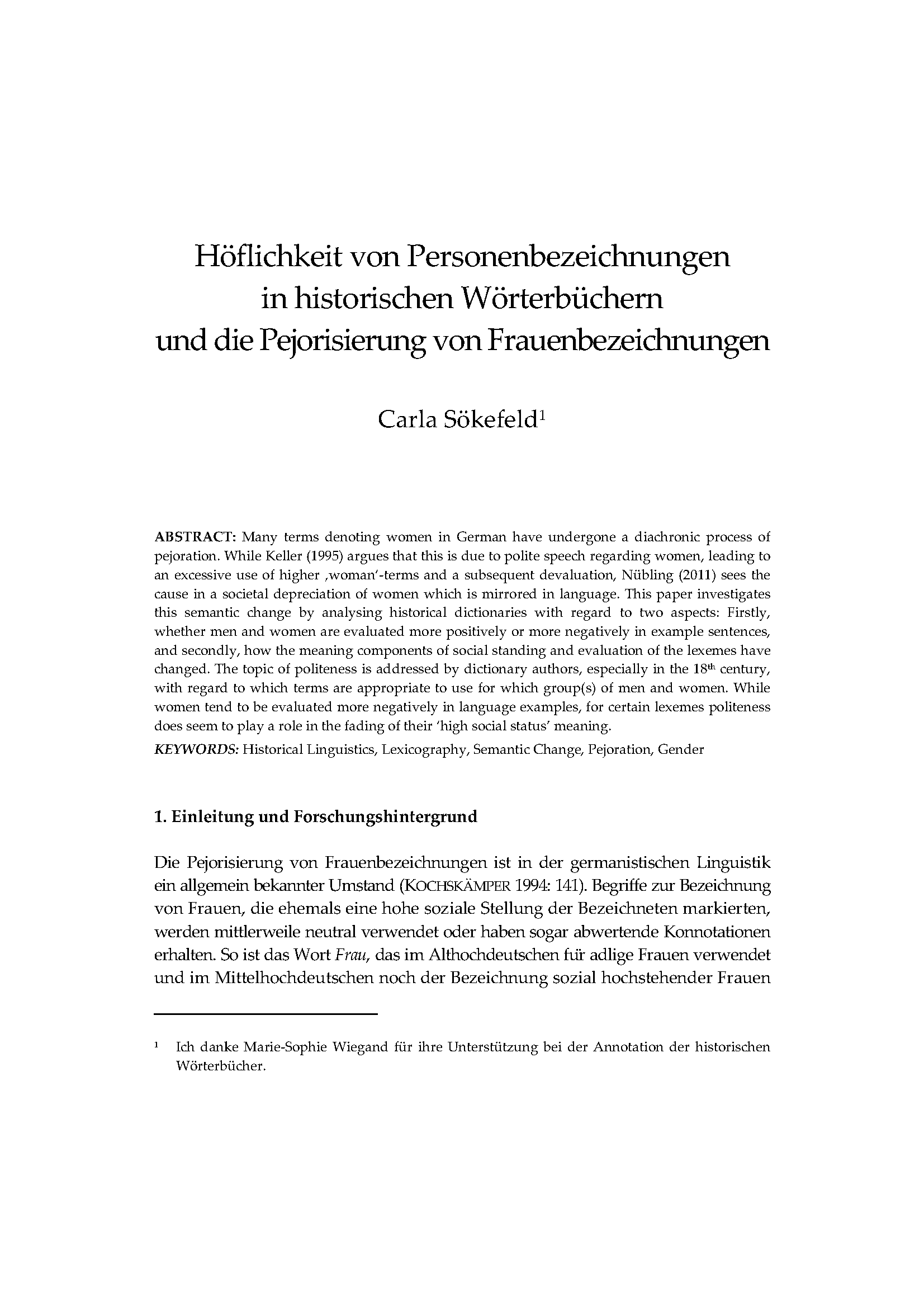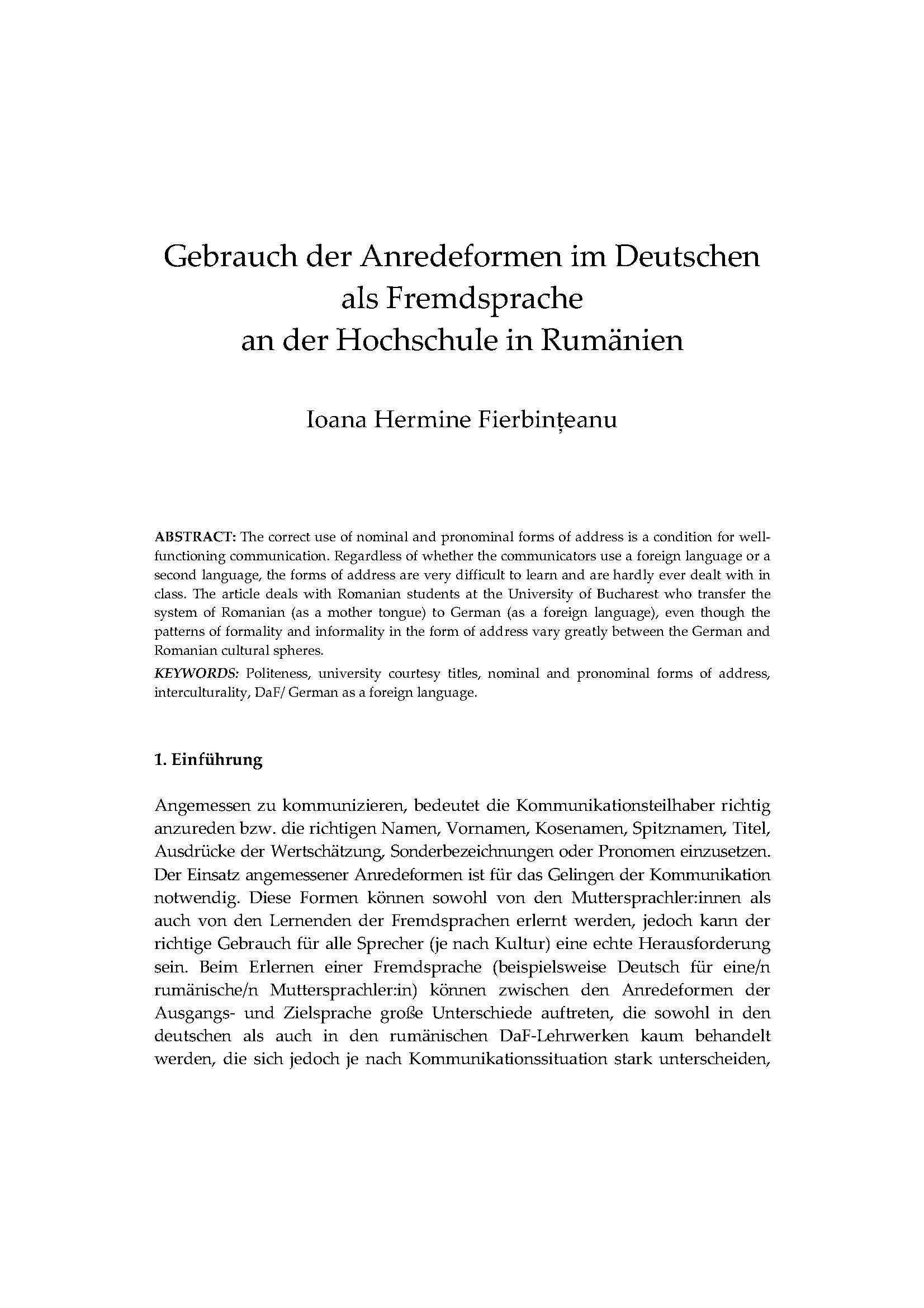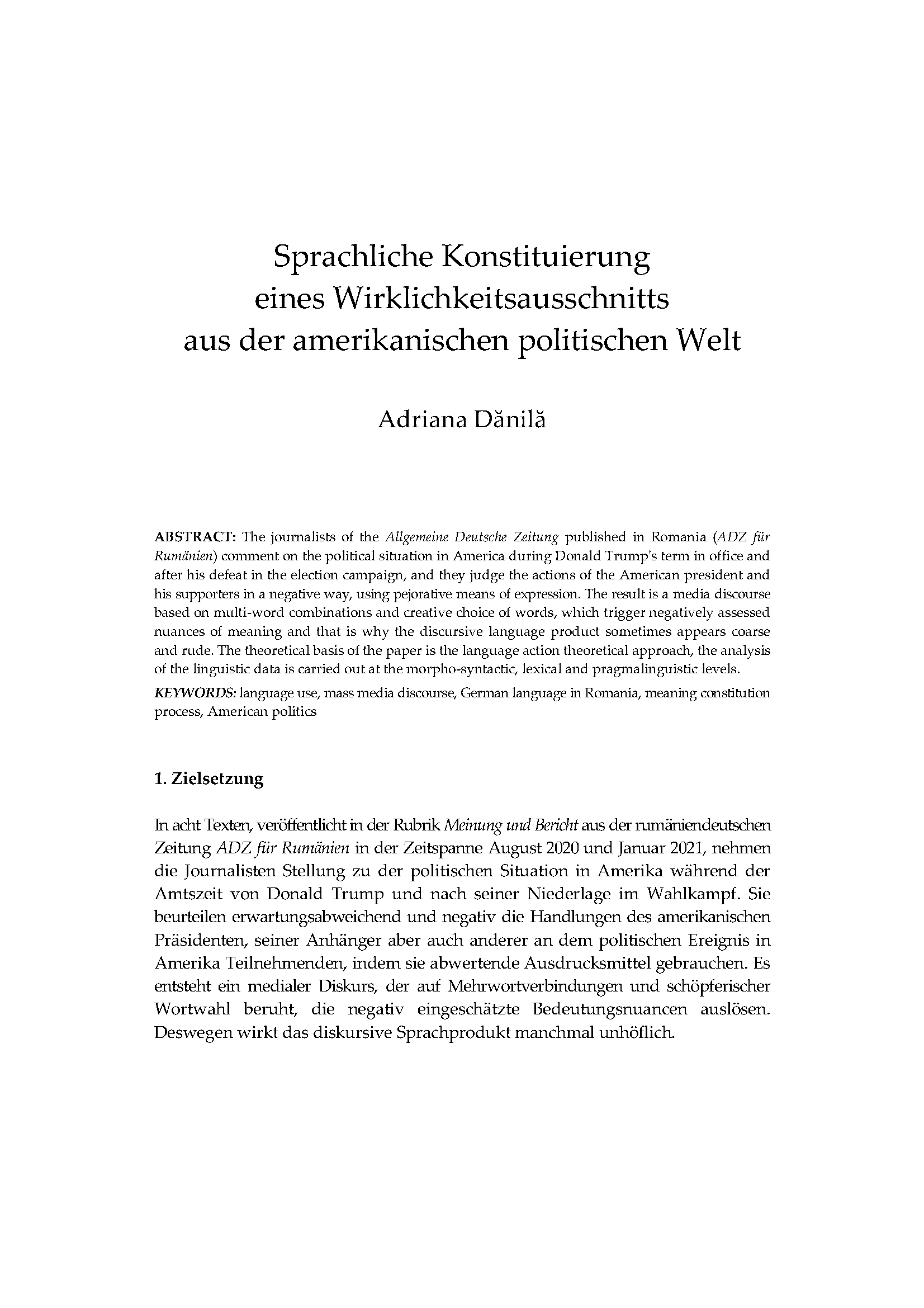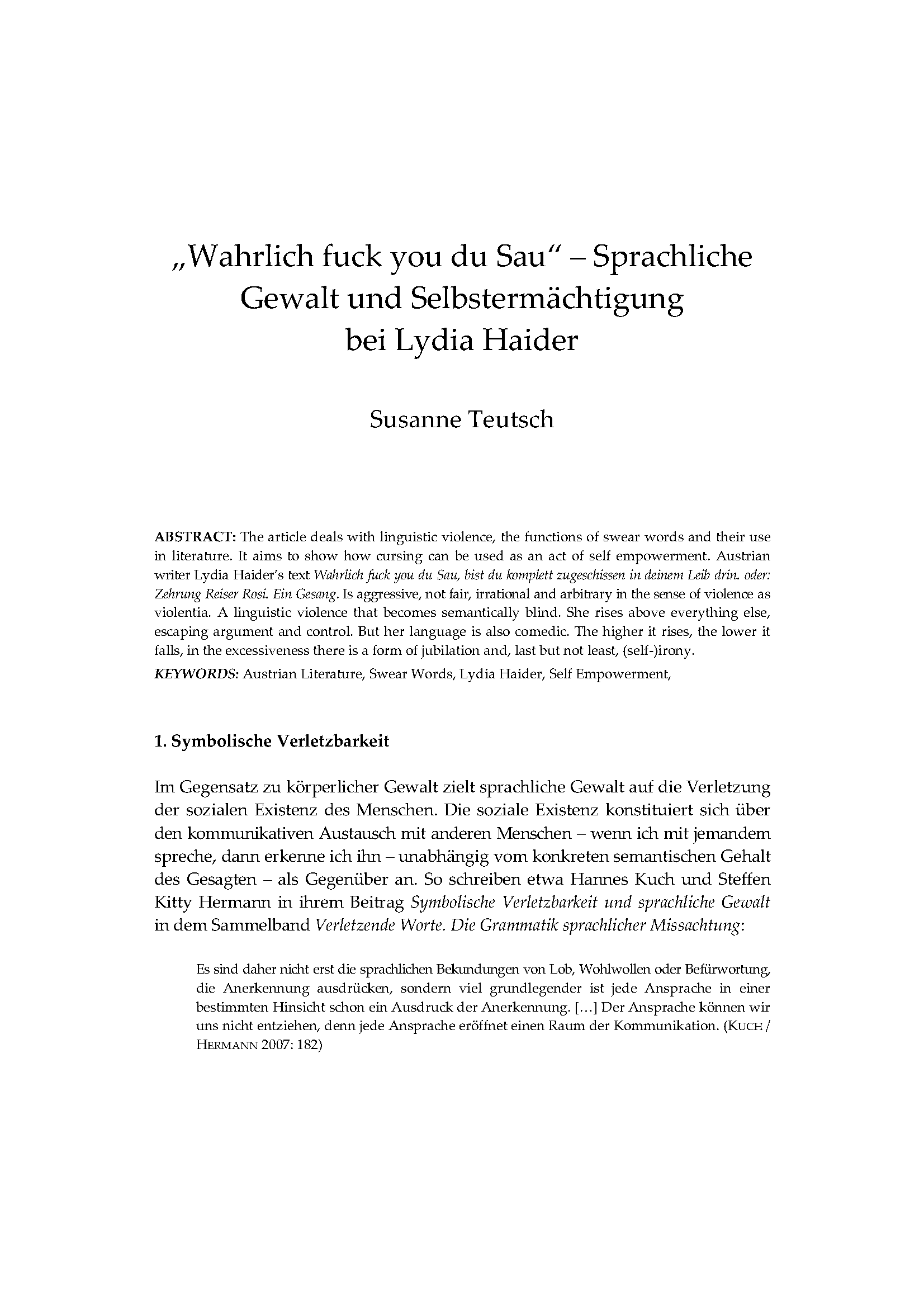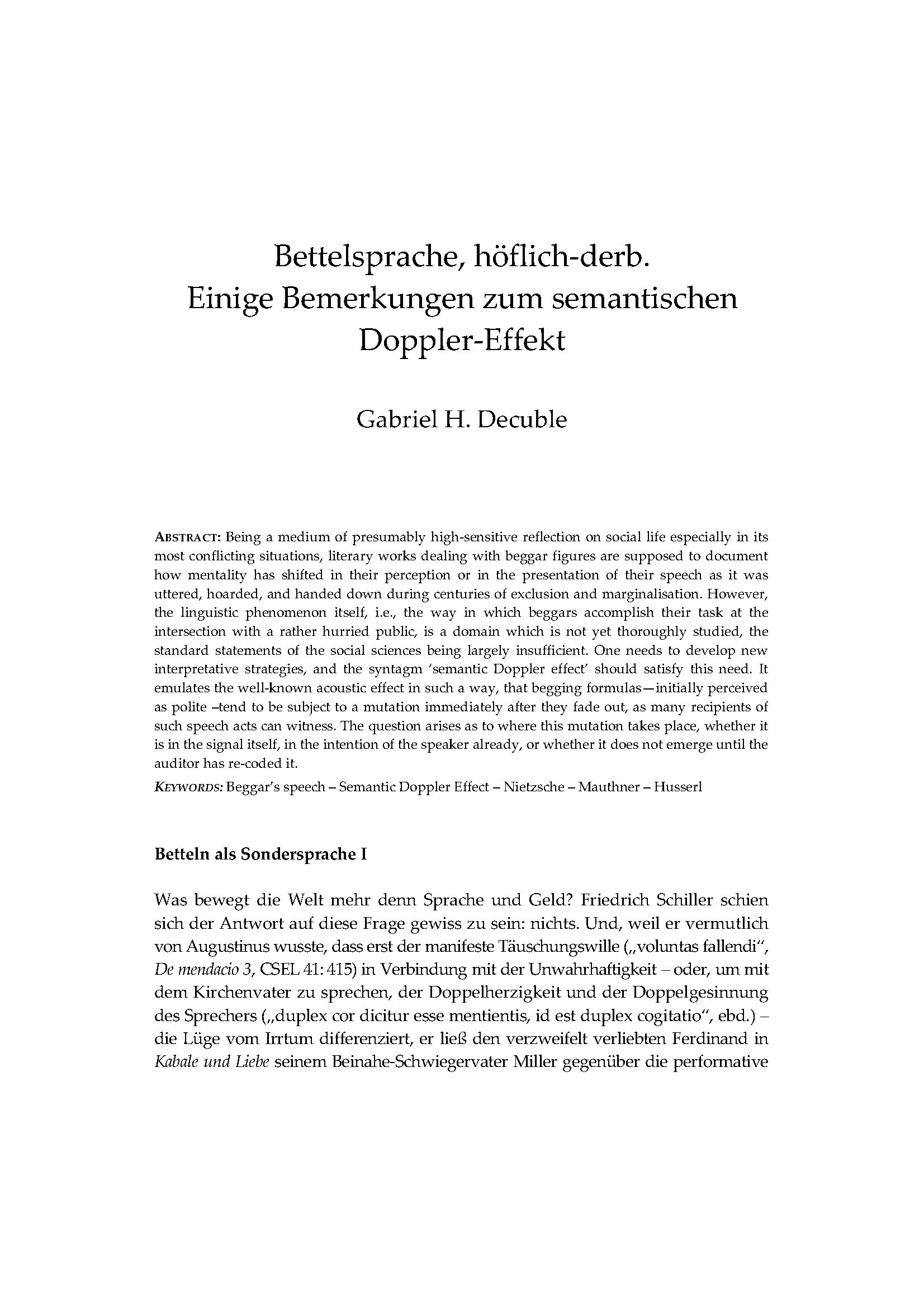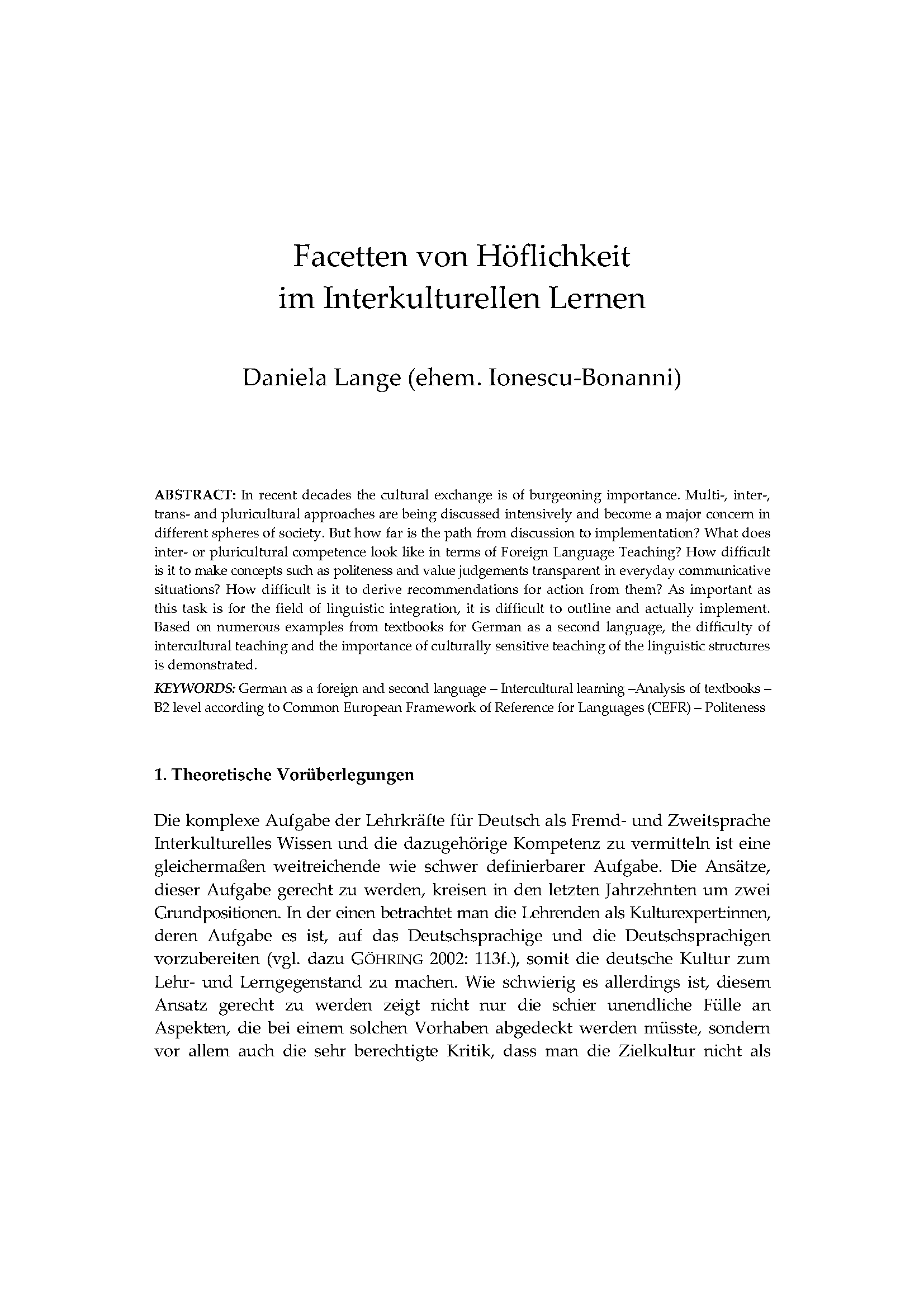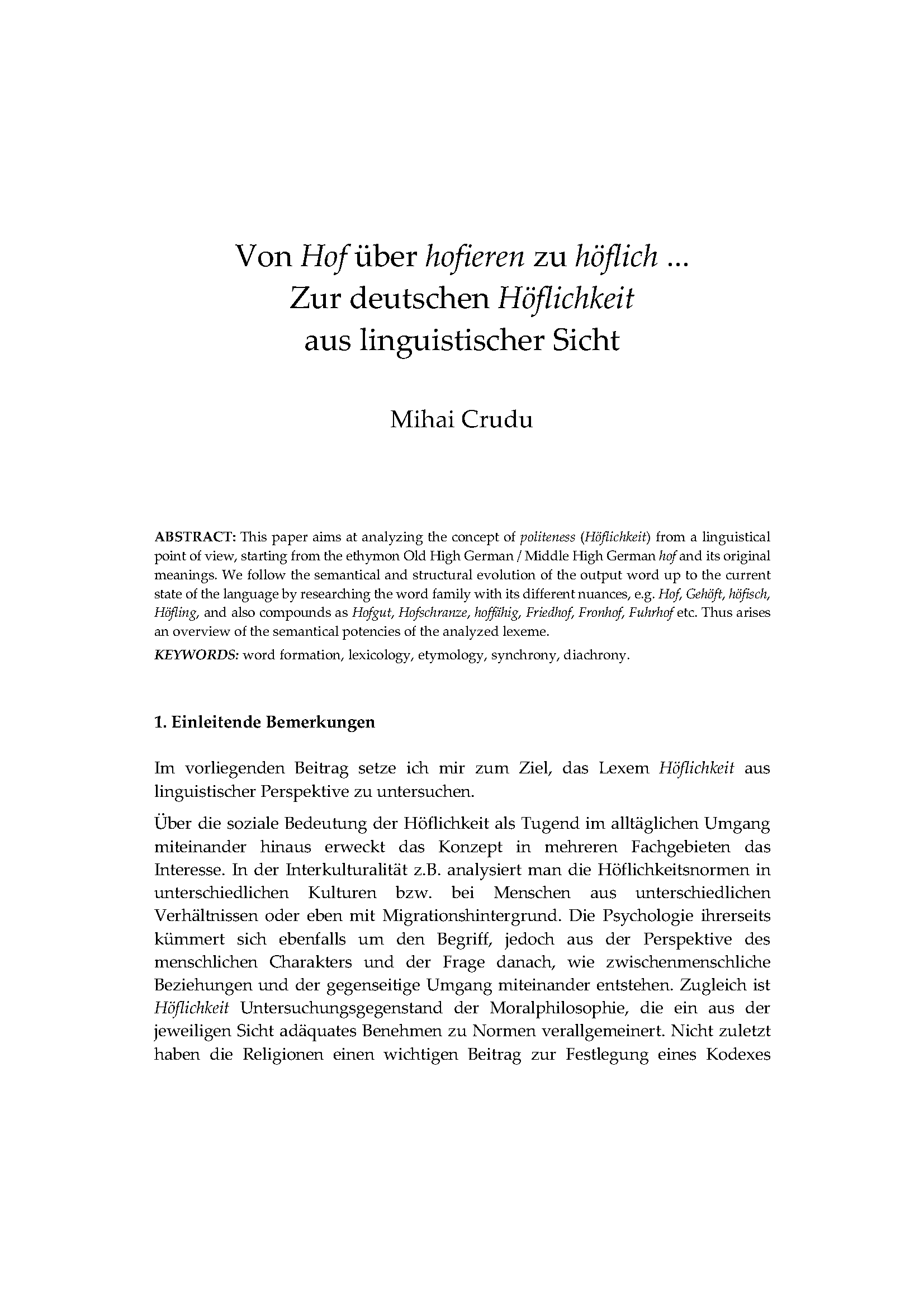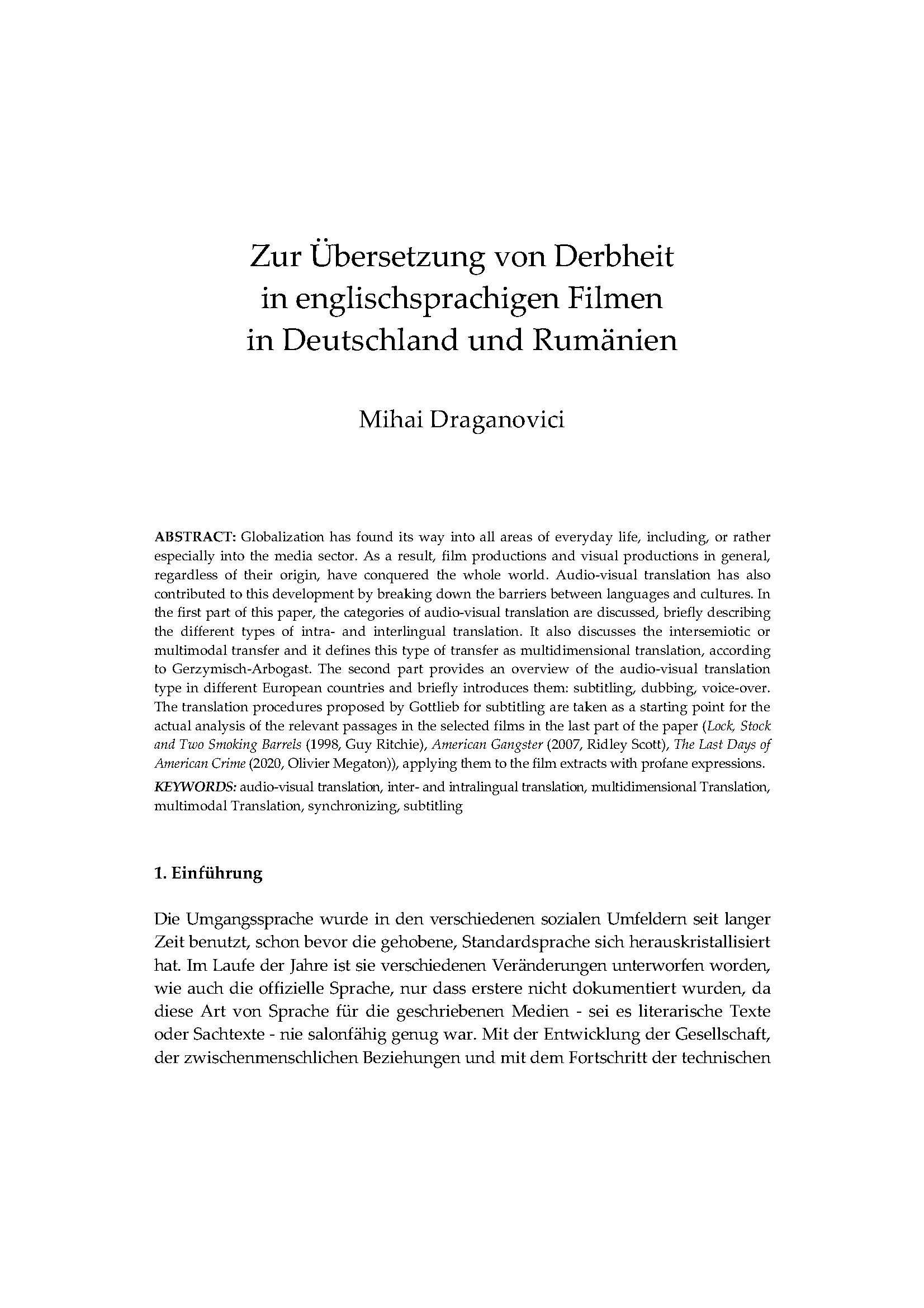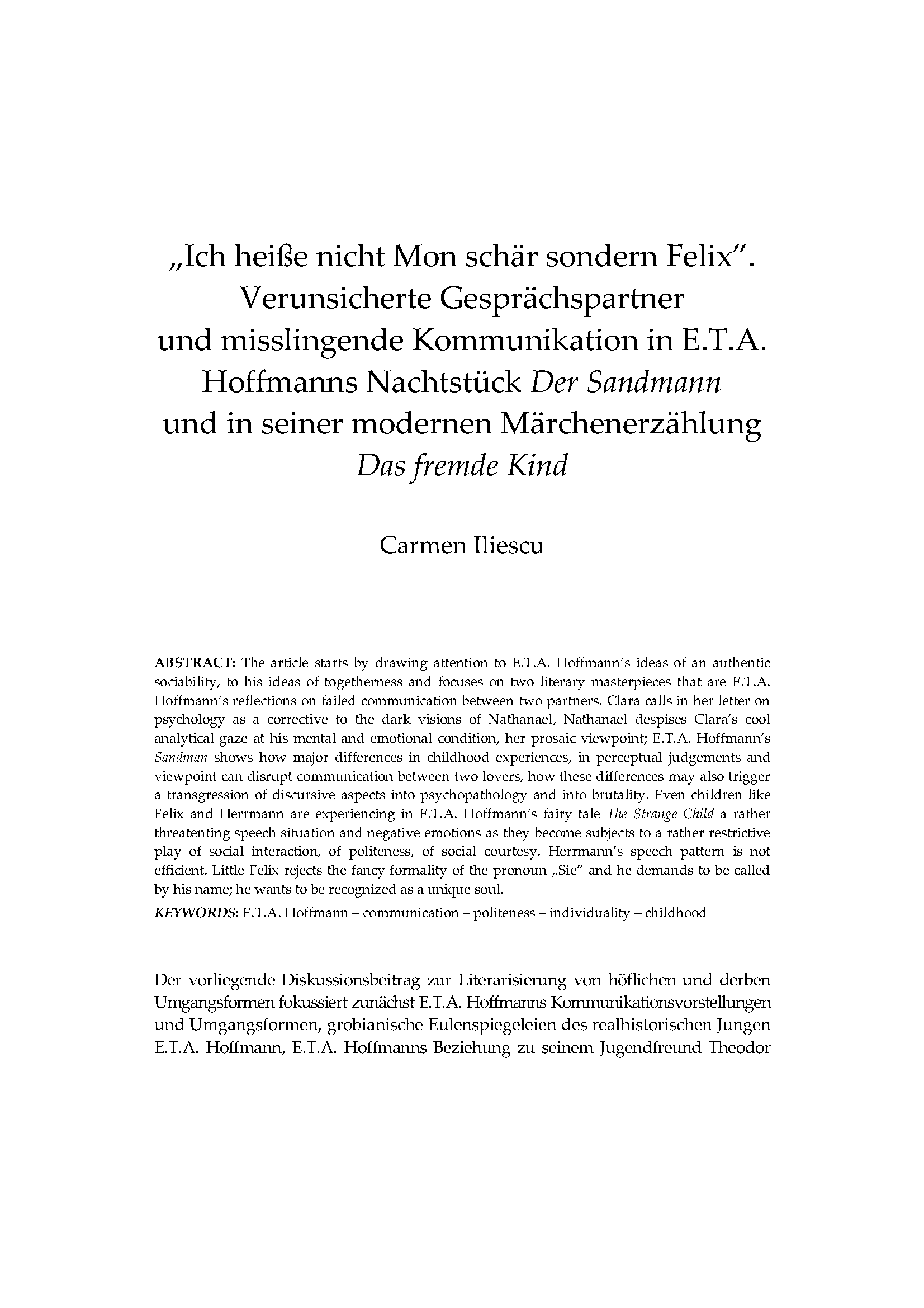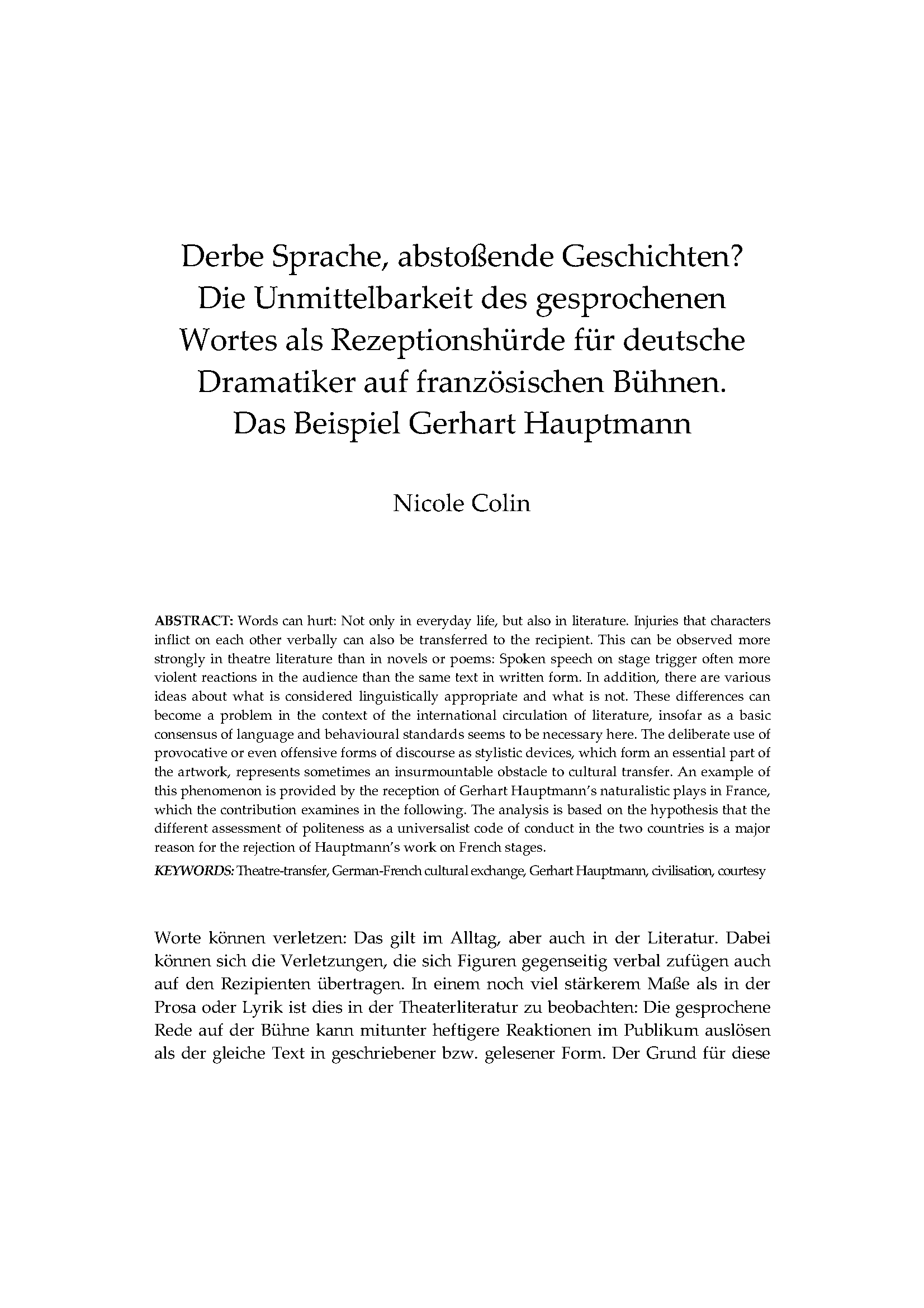Vol. 5 No. 5 (2023): Bukarester Beiträge zur Germanistik Heft 5/2023

Der Band ist Formen sprachlichen Umgangs mit Menschen gewidmet, der sprachlichen Höflichkeit und der sprachlichen Derbheit, in ihrem getrennten und gemeinsamen Bestehen und Wandel. Die zehn Perspektiven über Derbheit und Höflichkeit, die in dem Band präsentiert werden, können in ihrer Beziehung zueinander leicht verdeutlicht werden.
Published:
2024-04-18

